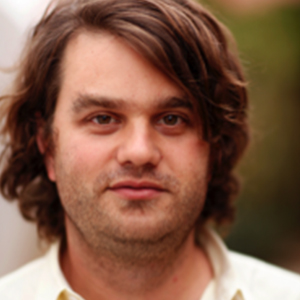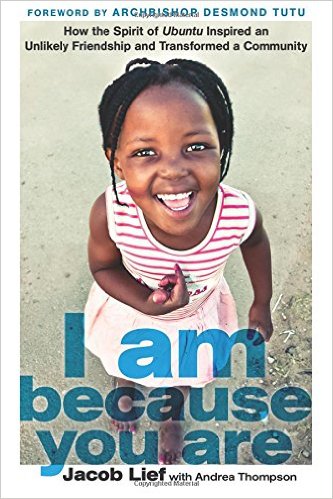Advancements & Achievements« Back to Advancements & Achievements Listings

HOW UBUNTU EDUCATION FUND IS DISRUPTING THE NONPROFIT MODEL
By Rowan Philp
Ubuntu Education Fund is redefining the theory of going to scale, while deliberately solving one of the hardest human problems in the hardest possible way.
Tasked with providing world-class education and health support to the most vulnerable township children in an eastern South African city, the nonprofit is sustainably achieving stunning outcomes – following a business model shift that was so dramatic that it is reshaping the global philanthropy landscape. The Fund also offers a powerful lesson for business on the courage and resolve needed to identify innovation failure – even when the initiative is hugely successful by every traditional supply-side metric.
In 2007, Ubuntu was celebrated by donors and distinguished organizations like the Clinton Foundation for “reaching” 40,000 orphaned children in the poorest townships around the eastern South African city of Port Elizabeth. Armed with a mandate to alter the course of the lives of the poorest and most vulnerable children there, Ubuntu was providing health and educational services, building libraries, and distributing condoms at a time when these services were not simply available to township residents.
The apparent success of this scalable intervention attracted $8 million from fundraising and a further $4.5 million in a five year grant during that year alone – and donors asked that the model be rolled out to tens of thousands more children. However – despite the widespread support for the model from donors – Ubuntu’s CEO and Co-Founder, Jacob Lief, then made a bold move: rather than increasing the number of children “reached,” Lief announced, instead, that all funding and operational efforts should be redirected to a dramatically smaller group of the most vulnerable children within the nonprofits' reach.
Breaking entirely with the global nonprofit model – and to the discontent of many donors – Lief abandoned the mass outreach and refocused all the organization’s resources on just 2,000 children and their families. He told BPI and SABLE: “If we get 2,000 children who are on a trajectory of crime, poverty, and death, and put them on a trajectory of stable health, stable income, and good citizenship, this will change an entire community”.
Lief agrees that many successful nonprofit models can and should scale – like building a school, or achieving the stunning low-cost-to-high-outcomes result of the Partners in Health approach to cutting airborne infections within developing world clinics and hospitals.
But – critically – he declares: “We have found that raising children is not scalable. It is deeply individualized, and we create individualized pathways for each of our children. Every kid is different, and we give each child what they need. There is no point in investing in a child if the home they go home to is not stabilized – if there is abuse; or no roof; if the mother is not healthy." Further, he notes: “You can’t raise a child in a 12-month grant cycle – it takes years and years. If we spread ourselves too thin, we won’t achieve anything. Philanthropists say: ‘What’s your exit strategy?’ – we say there is no exit strategy to raising children. We work with these children every single day or their lives. We’ve chosen to do it the hard way, but it’s the right way.”
Visiting the homes and shacks of enrolled children, he found that the original intervention was merely touching children, and doing little or nothing to change the trajectory of their lives. When it comes to raising kids: "A little only goes a long way in terms of philanthropy; it goes nowhere at all for the child."
His co-founder, Malizole Banks Gwaxula, helped shape the new approach by asking, essentially: 'What good are grade 8 educational tools, if children have no protection against sexual abuse, extreme poverty, crime, and insecurity?' Lief then went even further against the model: insisting on only admitting candidates who had the poorest prospects for graduating the program, even by township standards: children who were HIV positive, or who were survivors or rape and other abuses. He went further still: insisting that these children be given 'everything': the same high level of health, after-school activities, opportunities, home-life stability, and individualized interventions as a suburban western child, 'from cradle to career'.
But the focus on depth immediately stacked the deck against fundraising.
“The number one question I get is, 'Jake, we love what you’re doing, but how can you reach more kids for less money?'" he says. “We go to Davos, and we hear the same old recipe." I say, “hang on – you’d never say that about your own children.” "Do we have the will to apply something we’d apply to our own children? We have the means to do it; we need the will to apply it – let's give these children everything; what children everywhere deserve. We started 17 years ago with grade 8 students; we didn’t want top academic kids; we wanted the kids who were raped, sexually abused or orphaned – the bottom of the bottom, in terms of prospects. We wanted to prove that if we invested in them in the same way people invested in me, we could level the playing field.”
At the heart of Port Elizabeth’s townships is a living monument to Ubuntu’s “everything” model. Housing a pediatric HIV clinic, classrooms, computer labs, pharmacy, nutrition and training facilities, the striking 25,000 square foot Ubuntu Centre is designed “to make a statement to the world that access to quality education and healthcare is a right.” Lief says the world-class quality of the facility achieves the additional value of making clients “feel valued.” In fact, the Stan Field-designed Center has already won three architecture awards.
With the odds against the most vulnerable HIV orphan approaching “a million to one,” co- founder Malizole Gwaxula has laid out the astonishing mathematics of success: “We believe not only that (it takes) one million interventions to break the poverty trap for one child, but also that our cradle-to-career approach is the only way to achieve sustainable development.”
The results of Ubuntu’s approach are now helping to change the philanthropy paradigm. The intensive “cradle to career“ non-profit model is already reflected in the U.S. by Harlem Children’s Zone, which is breaking the generational poverty cycle for thousands of children. And the grade 12 pass rate for Ubuntu participants is 94% – more than twice the rate elsewhere in the township. In 2011, an audit by McKinsey and Company showed that Ubuntu graduates will add a cumulative average of $195,000 to society compared to $9,000 for non-graduates from the same poor community. And that every $1 invested in program children yields $8.70 in lifetime income for that child.
Individual success stories among graduates include young academics and business owners who were once amongst the most vulnerable of South Africa’s HIV orphans. Primary school pupil Hlelo escaped hunger, family instability and a learning disability to have a realistic shot at her dreams of being a biologist or a fashion designer. For Lief, some of the most satisfying success stories involve clients who are, in the first place, simply alive – and not on a track towards harming others; and, second, that they are on a sustainable track to simply be good citizens.
 “We have a girl doing her pHD in biometrical engineering at Rhodes – she was a girl living in a shack and had no resources or opportunities to change her trajectory," he says. “We have a child who now works on the production line at the VW factory. Every child doesn’t have to become a chartered accountant or an engineer, but can become anything they dream of.”
“We have a girl doing her pHD in biometrical engineering at Rhodes – she was a girl living in a shack and had no resources or opportunities to change her trajectory," he says. “We have a child who now works on the production line at the VW factory. Every child doesn’t have to become a chartered accountant or an engineer, but can become anything they dream of.”
But the more fundamental, life-and-death outcomes are even more dramatic. In just one metric from 2014, 96% of Ubuntu’s HIV-positive clients adhered to treatment regimens, compared to 57% adherence in the region. Lief says: “We’ve had a 100% success rate in the past two years: every single child in our Prevention of Mother-to-Child Transmission program (PMTCT) born has been HIV negative.”
The change in philosophy triggered a new business model at Ubuntu. Lief says: “When we launched Ubuntu, our goal was to build capacity in schools – we spent 5 years; dumped R70 million into schools; worked with implementing partners – it was a complete waste of money. That was partly because unions were too strong; principals had no authority to hold teachers accountable; teachers educated under the past, useless system and lacked the appropriate skills – it was a complete mess. We decided we’d build a direct service programs and run our programs ourselves. That was a big pivot – we learned a ton.”
He says the innovation happening at Ubuntu is focused on the model, rather than the day-to-day interventions around Port Elizabeth. “Disruption is us saying that we can challenge the philanthropic community to invest in disadvantaged communities in the same manner that our families invest in us, and afford them the same dignity,” he says. “There’s no innovation here in the day-to-day. You ensure a healthy birth. You feed them every day. You make sure there’s a roof over their head. If they’re getting sick, you get them a doctor. You make sure they see a dentist. If they’re failing math, you get them a tutor. You’re there to support them as much as you can.”
The shift in social entrepreneurship thinking at Ubuntu found programmatic shape when Lief realized that “around the world, what was missing were healthy community institutions.” He says: “The common denominator of poor communities around the world is that they are missing robust community institutions, and the thriving areas have robust institutions; a thing that is bigger than its founders; that can respond to the community’s needs. It could be a school; a community center; a religious institution – it doesn’t matter. That’s how you help a community raise itself out of poverty.”
And indeed, Ubuntu’s 2014 Annual report contains a slew of head-turning outcomes, including the fact that 90% of Ubuntu’s toddler clients achieved critical milestones in literacy, motor skills and cognition, with each having undergone 300 hours of play-based programing. In addition, Ubuntu stabilized 86% of vulnerable clients’ lives in just four years. Finally, 80% of initiative graduates have found jobs.
Lief’s highly influential new book is called: I Am Because You Are: How the Spirit of Ubuntu Inspired an Unlikely Friendship and Transformed a Community. He says it largely tells the stories of lessons from failure.
Actor Kevin Bacon was among a large group of thought leaders who found direct inspiration from the book. Bacon noted: “The book is as fascinating and inspirational as Jacob himself. This story of creating an incredible island of hope in South Africa is told with excitement and brutal honesty.” Funder and entrepreneur Rob Kaplan wrote: “16 years ago, I invested seed capital into Jacob’s vision, because I saw someone who could innovate in a way that would change the world.”
Yet Jacob says a deeply risk-averse culture is threatening the effectiveness of the nonprofit world. “You go to Northern California, and it’s like a badge of honor for young entrepreneurs to talk about their failures, their startups that didn’t make it,” he says. “Look at Elon Musk – failure after failure, but you know what? He still has a serious vision of living on Mars. In my sector, no one’s allowed to talk about failure. Trust me: there is a lot of failure out there, and we are not learning from it as a community. We’re supposed to create miracles with every dollar – but real innovation comes with failure and risk."
My book is really a story of learning—of trying things, taking risks, and failing along the way.”
With initiatives including a new podcast series – “Philanthropy Unfiltered” – Lief is leading a new debate on how nonprofits and social entrepreneurs should invest in poor communities around the world. “We need to create more platforms to change the way people think about these issues,” he says. “There’s just not enough risk being taken in philanthropy. So much of the funding is heavily restricted.”
Lief says the discussion over failure and thankless hard work must be promoted in the nonprofit world, as they are the new building blocks of sustainable success. He says: “I just taught a course at Penn this past year – “Transforming Grassroots Investments Into Global Dividends.” There are so many young men and women who want to go into this field. I don’t want to say people aren’t well intentioned, but I really felt it was necessary both to inspire young people, but also remind them this is really difficult work. So much of what we do doesn’t work.”
“The environments we are trying to do this work in are so challenging because we are dealing with generational poverty. Its one thing to read about child rape; its another thing to meet a child who has been raped; kids that are just so damaged, and not just from abuse. You need resilience to survive these environments.”
Ubuntu also found that parenting does not even begin at birth. “For most people, parenting begins when a child is born,” says Lief. “But the truth is that it begins in the first trimester. If you don’t get that right, you’ll be behind the game permanently. The research is rock hard that a child’s development is correlated directly to the mother’s health in the first trimester: the impact on cognitive skills; everything. So we assist with doctors’ visits; watching what mom puts into her body. If the child is born HIV positive, or is not the right birth weight; if they have fetal alcohol syndrome – those kids will be playing catch up rest of their lives.”
Lief says he has realized that some successes are no longer worth pursuing: “I’ve also realized that when people say to me, “Jake, there’s so much poverty in America. Why should I give to South Africa?” I’m never going to change their minds. I used to try to fight those people.”
And while parenting cannot scale for Ubuntu, the model can be replicated, according to Lief. “We have a proven model that works – now what?” he says. “We were offered a huge amount of money by a bunch of fund managers to launch an Ubuntu here in the States, and we turned it down. Rather us building an Ubuntu in the Bronx, let's find a kid from the Bronx who has graduated somewhere and is prepared to come back to make a sustainable difference for communities there.”
Bio
 Jacob Lief is Founder and CEO of Ubuntu Education Fund, a non-profit organization that takes vulnerable children in Port Elizabeth, South Africa from cradle to career. Nuancing traditional development models, Ubuntu redefined the theory of “going to scale”: rather than expanding geographically, they focus on the depth rather than breadth of their programs within a community of 400,000 people. Ubuntu's programs form an integrated system of medical, health, educational and social services, ensuring that a child who is either orphaned or vulnerable could succeed in the world of higher education and employment. Ubuntu's child-centred approach highlights the difference between merely touching a child's life versus fundamentally changing it.
Jacob Lief is Founder and CEO of Ubuntu Education Fund, a non-profit organization that takes vulnerable children in Port Elizabeth, South Africa from cradle to career. Nuancing traditional development models, Ubuntu redefined the theory of “going to scale”: rather than expanding geographically, they focus on the depth rather than breadth of their programs within a community of 400,000 people. Ubuntu's programs form an integrated system of medical, health, educational and social services, ensuring that a child who is either orphaned or vulnerable could succeed in the world of higher education and employment. Ubuntu's child-centred approach highlights the difference between merely touching a child's life versus fundamentally changing it.
In 2009, Jacob was selected as an Aspen Institute Global Fellow and, in 2010, he was recognized by the World Economic Forum as a Young Global Leader. In 2012, he joined the Clinton Global Initiative Advisory Committee. In 2014, he was a lecturer at the University of Pennsylvania and is the host of Philanthropy Unfiltered--a podcast series produced in partnership with the University's Center for High Impact Philanthropy. Jacob has authored a book, I Am Because You Are, which was published by Rodale Inc. in May 2015.

